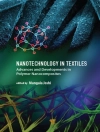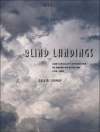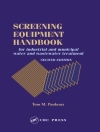Food Scientists have been teaching the subject in the same way for the past fifty years. This book therefore aims to modernise the coverage of the subject, bringing it in line with the recent and extensive developments in Materials Science; in particular, the field of supramolecular chemistry of food components has been generally overlooked in textbooks. Edible Nanostructures will summarise developments in the areas of protein aggregation and gelation, starch crystallography, emulsions, and fat crystal network nanostructure and microstructure, addressing their functionalities in food. Each chapter offers both the qualitative view and a basic quantitative treatment of the area, including basic models used to describe structure and its relationship to functionality, if they exist.
This is the first book on nanostructures in foods, and is suitable as a textbook for undergraduate students in Chemistry, Physics and Food Science.
表中的内容
Edible Nanostructures: Introduction; Fat Nanostructures; Polysaccharide Nanostructures; Protein Nanostructures; Lipid Mesophase Nanostructures; Self-Assembled Fibrillar Networks of Low Molecular Weight Oleogelators; Nanoemulsions; Imaging Nanostructure; Computer Simulation Techniques for Modelling Statics and Dynamics of Nanoscale Structures;












